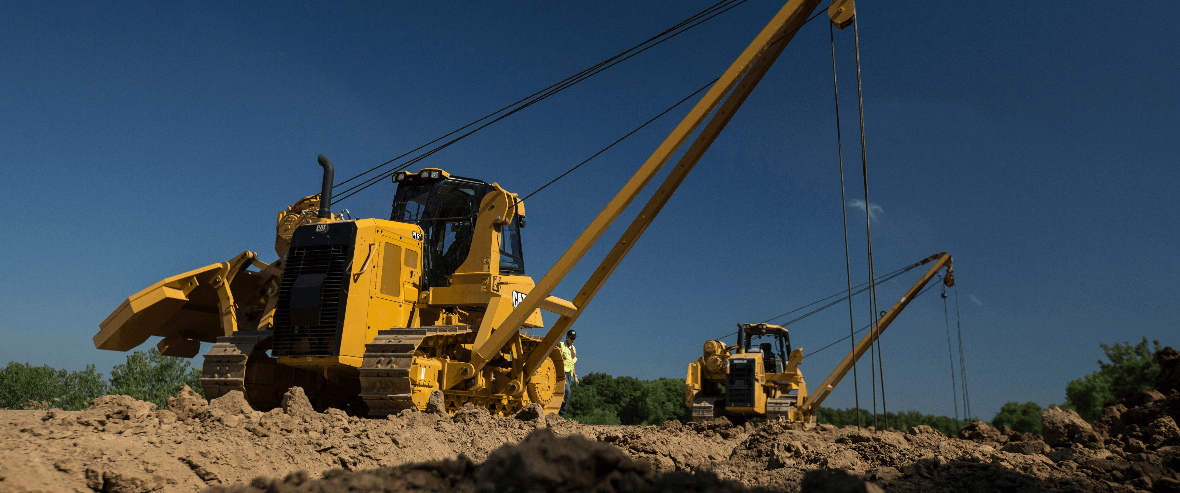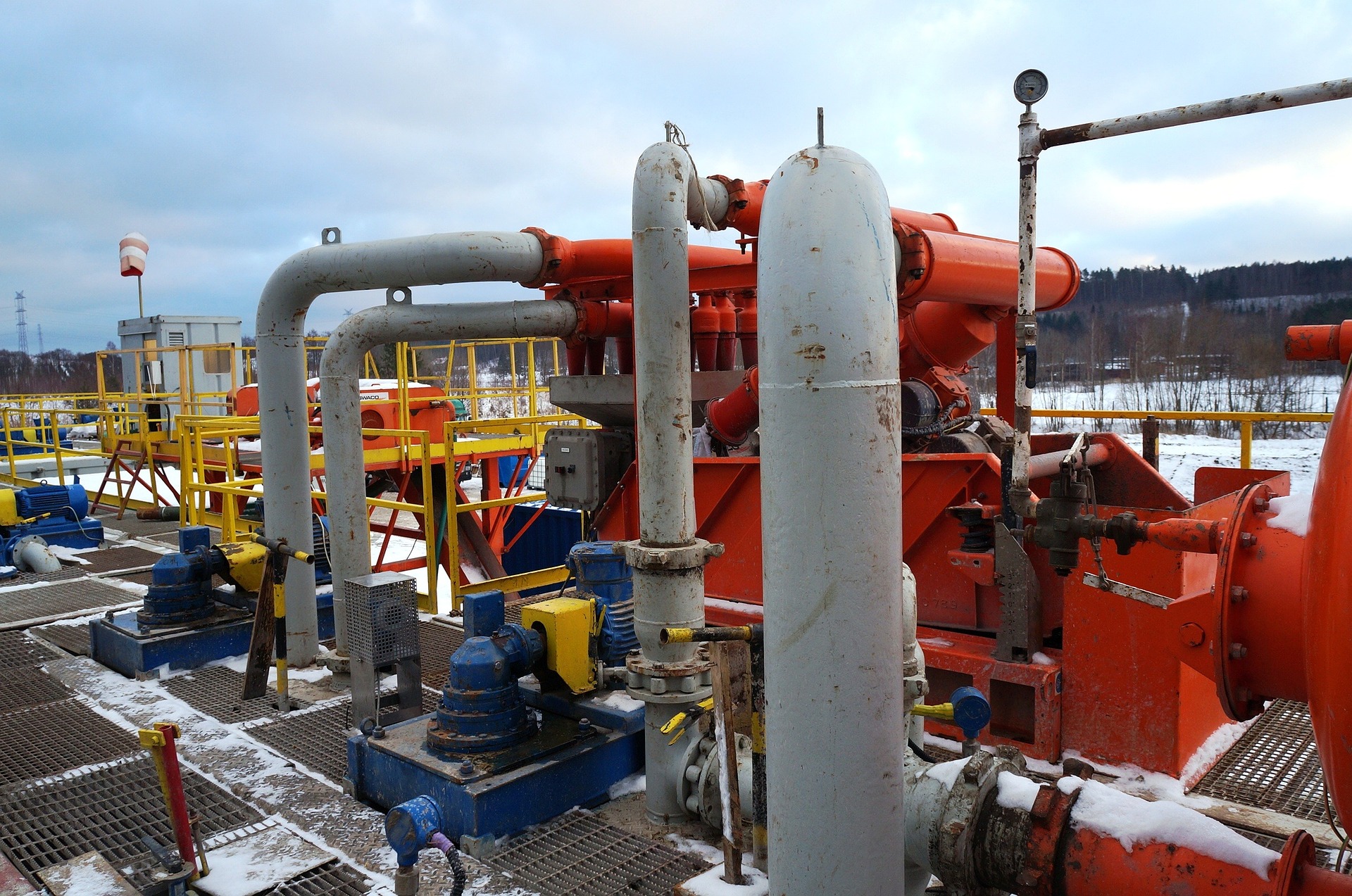Best reasons to choose Superior Oilfield pipeline equipment rentals for reliable projects
A Comprehensive Overview to the Various Sorts Of Oil Field Equipment and Pipeline Equipment Available
The oil and gas sector relies heavily on specific tools for effective extraction and transportation. Numerous kinds of equipment, from piercing rigs to tank, play essential duties in this intricate process. Each item of tools serves distinctive features that add to overall functional success. Understanding these parts is essential for anybody associated with the field. As the market progresses, so also do the technologies that sustain it. What improvements are on the perspective?

Drilling Rigs: The Backbone of Oil Exploration
Drilling rigs function as the essential machinery in the domain of oil exploration, allowing firms to accessibility hydrocarbon reserves buried deep under the Planet's surface. These rigs are available in numerous types, consisting of land rigs, offshore rigs, and mobile units, each made to operate in details environments. Outfitted with advanced innovation, piercing rigs can penetrate geological formations with accuracy, making sure reliable resource extraction. The structural integrity and operational capacities of these rigs are crucial, as they must stand up to extreme conditions and significant stress. The selection of a boring gear impacts the overall task price and timeline, making it an important consideration for oil firms looking for to optimize their exploration efforts and make best use of productivity in their operations.
Pumps: Important for Fluid Motion
In the oil extraction process, the role of pumps is considerable, assisting in the movement of fluids throughout various stages of manufacturing. Pumps are crucial for moving petroleum, water, and various other liquids from underground reservoirs to the surface area and after that with pipes to refineries. They can be found in different types, including centrifugal, favorable variation, and completely submersible pumps, each offering details functions based upon the fluid qualities and functional requirements. Centrifugal pumps are frequently utilized for their effectiveness in high-flow applications, while positive variation pumps master handling thick fluids. The selection of pump effects general effectiveness, operational safety and security, and upkeep costs. Proper selection and upkeep of pumps are vital for optimizing manufacturing and minimizing downtime in oil area operations.
Valves: Controlling Flow and Pressure

Valves play an important role in taking care of the circulation and pressure of liquids within oil fields and pipelines. Different sorts of shutoffs offer unique applications, each developed to satisfy specific features basic for reliable operation - Superior rentals squeeze tools. Comprehending the characteristics and uses these shutoffs is crucial for enhancing system performance and safety
Kinds of Valves
Vital components in oil field procedures, valves play an essential function in regulating the circulation and pressure of liquids within pipelines and tools. Different kinds of valves are utilized to satisfy the varied requirements of oil and gas production. Common kinds consist of gate valves, which offer a straight-line flow and marginal pressure decrease; world shutoffs, recognized for their strangling capabilities; and sphere valves, acknowledged for their fast on/off control. Furthermore, check shutoffs avoid heartburn, while butterfly valves provide a light-weight option for managing flow. Each shutoff type is created with details materials and setups to hold up against the harsh problems typically found in oil areas, making certain dependability and performance in procedures. Understanding these types is critical for efficient system monitoring.
Valve Applications and Features
While different kinds of valves serve distinct functions, their primary applications rotate around managing flow and pressure within oil and gas systems. Valves such as gateway, world, and round valves regulate liquid movement, guaranteeing peak efficiency and security. Gate valves are commonly used for on/off control, providing marginal circulation resistance. Globe shutoffs, on the other hand, deal specific flow guideline, making them ideal for throttling applications. Sphere valves are favored for their fast procedure and limited securing abilities. In enhancement, pressure safety valve are critical for stopping system overpressure, securing equipment honesty. On the whole, the proper option and application of shutoffs boost operational efficiency, making certain the dependable transportation of oil and gas through pipes and handling centers.
Compressors: Enhancing Gas Transport
Compressors play an essential function in the effective transport of natural gas, guaranteeing that it relocates efficiently with pipes over fars away. These gadgets increase the pressure of gas, allowing it to get rid of rubbing and altitude changes within the pipeline system. In addition, compressors promote the balancing of supply and demand, fitting fluctuations in consumption and production prices. Various kinds of compressors are employed in the market, consisting of centrifugal, reciprocating, and rotating screw compressors, each offering distinctive advantages based upon the functional needs. Regular maintenance of these compressors is vital to take full advantage of efficiency and reduce downtime, ultimately adding to a trustworthy gas transport network. Their essential feature underscores the importance of compressors in the overall oil and gas framework.
Storage Tanks: Safe and Reliable Fluid Monitoring
Effective transportation of gas depends on various support group, one of which is the appropriate administration of storage tanks. These containers play an essential role in safely consisting of fluids, making certain that operational effectiveness is kept while decreasing environmental dangers. Constructed from sturdy materials, they are created to endure high pressures and destructive aspects. Correctly sized and tactically located, tank promote the smooth circulation of all-natural gas and various other fluids, preventing traffic jams in supply chains. Normal maintenance and tracking are imperative to find leakages or architectural problems, promoting safety and compliance with governing criteria. Inevitably, the efficient monitoring of storage space tanks is critical for the general integrity and dependability of the oil and gas market's fluid handling systems.
Pipeline Systems: Framework for Transport
Pipeline systems function as the backbone of the oil and gas industry, promoting the efficient transport of hydrocarbons over large distances. These systems include different elements, consisting of pipes, valves, pumps, and compressors, all carefully developed to assure smooth circulation. The products utilized in pipeline construction, typically steel or high-density polyethylene, are selected for durability and resistance to rust. Pipeline networks can extend throughout land and water, linking manufacturing sites to refineries and circulation. In addition, advanced technology gas line repair service near me allows real-time monitoring of flow rates and stress degrees, boosting operational performance. The calculated positioning of these pipelines reduces ecological impact while making the most of source accessibility, therefore playing an essential role in conference energy needs worldwide.
Security Equipment: Ensuring Employee and Environmental Defense
The operation of pipeline systems, while vital for power transport, additionally provides considerable security challenges for employees and the atmosphere. Safety and security tools plays a substantial role in minimizing these dangers. Individual safety tools (PPE) such as safety helmets, handwear covers, and non-slip footwear safeguards employees from physical hazards. Additionally, gas discovery systems keep track of for leaks, guaranteeing that damaging compounds do not posture new backhoe price a risk to workers or the surrounding ecosystem. Emergency closure systems are necessary for quickly halting operations during a crisis, stopping possible disasters. Spill containment products, including absorbents and barriers, are basic for lessening environmental impact. Generally, buying comprehensive security devices is critical for keeping functional integrity and protecting both workers and the setting in the oil and gas sector.

Often Asked Questions
How Do I Pick the Right Oil Field Equipment for My Project?
Selecting the appropriate oil area tools includes assessing job requirements, budget constraints, and functional requirements. Consider factors such as devices dependability, compatibility with existing systems, and the vendor's credibility to ensure commercial gas line installation peak performance and security.
What Are the Upkeep Demands for Oil Field Equipment?
Upkeep needs for oil area equipment consist of regular assessments, lubrication, and timely repair work. Operators should additionally stick to maker standards, monitor performance metrics, and warranty conformity with safety and security policies to improve long life and efficiency.

Just How Can I Make Certain Conformity With Environmental Laws?
To guarantee conformity with environmental guidelines, firms need to carry out regular audits, implement finest techniques, invest in training, maintain correct documentation, and remain upgraded on regulation (Superior Rentals Contact). Collaboration with environmental agencies can also enhance adherence to policies
What Is the Average Lifespan of Pipeline Equipment?
The typical lifespan of pipeline devices generally varies from 20 to 50 years, depending on aspects such as worldly top quality, ecological conditions, and upkeep methods. Routine evaluations can significantly influence durability and functional effectiveness.
How Do I Safely Transport Oil Field Equipment to Remote Locations?
Moving oil field equipment to remote places needs careful preparation, including route assessment, securing authorizations, utilizing ideal lorries, and guaranteeing safety procedures are followed. Proper training and communication amongst staffs are important for successful transportation.